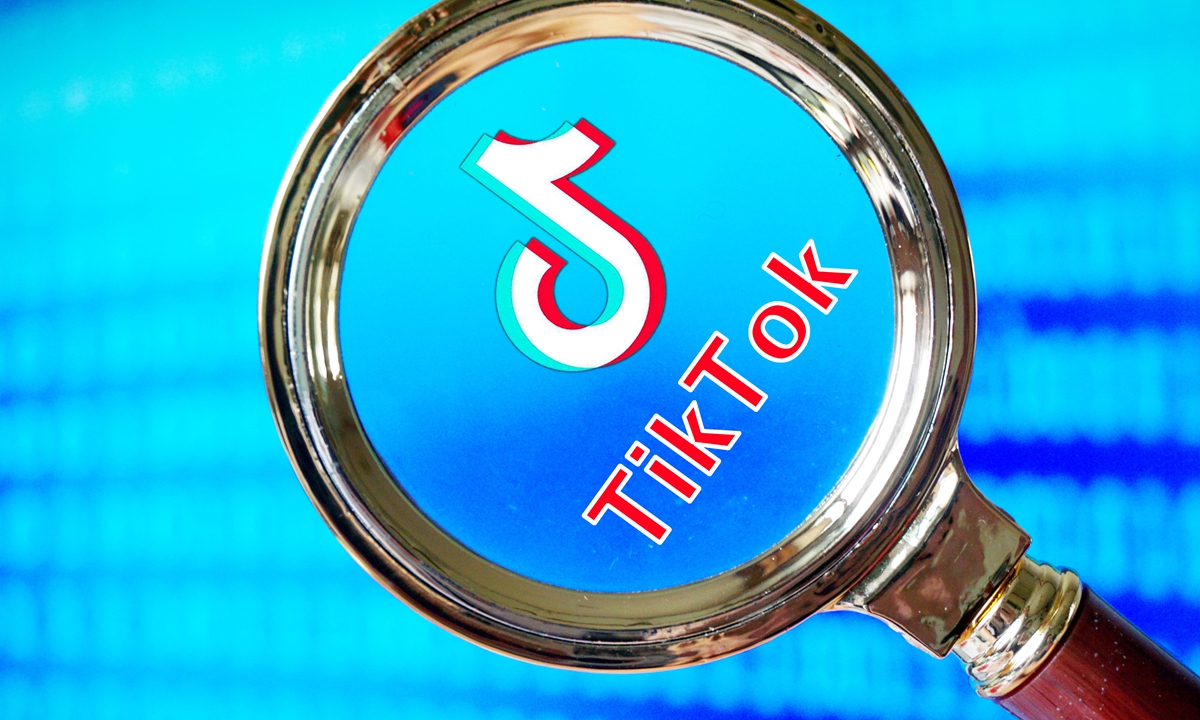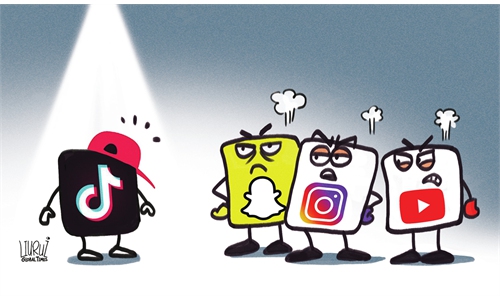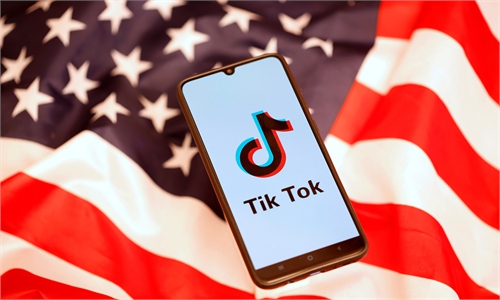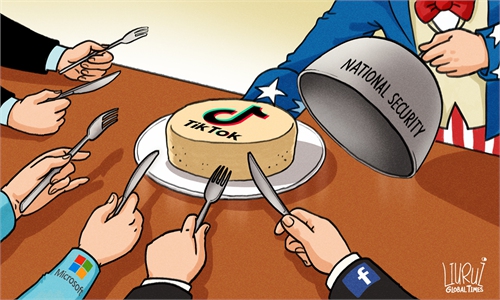
Photo: IC
The Trump administration's crackdown on TikTok is another step in a new cold war against China. While US Secretary of State Mike Pompeo claimed that the US was targeting the Communist Party of China (CPC), the White House is actually going on the offensive against Chinese companies - especially private ones.
Over the past few years, TikTok has become a US company. Its management team is made up entirely of Americans who would never risk breaking US laws for the benefit of the CPC.
TikTok's protection of data is in compliance with US laws. There is no doubt that TikTok is 100 percent aware of the importance that every American places on personal privacy. It knows that making mistakes in this regard will cost it dearly. TikTok is very concerned about any doubts raised by the US government and members of the Congress, especially regarding data security.
TikTok's CEO Kevin Mayer has repeatedly stressed that TikTok will never provide any user data to the Chinese government. All US users' data is stored on a US server in Virginia, while backup is kept by Singapore, a close partner of the US. In addition, TikTok has set up transparency centers in Los Angeles and elsewhere open to the public and provide information on TikTok source code, data privacy and security standards. And this is something that Facebook has failed to do.
TikTok follows the requirements of the US government in areas such as content management. TikTok has become the center of political information, with a large number of political videos, and has also become a platform for promoting certain political actions. In this regard, TikTok has encountered the same difficulties as did the US social media companies such as Facebook and Twitter. It has been censoring and deleting politically harmful information such as terrorism and racial discrimination in accordance with the requirements of the US government.
The short video company has very well assumed corporate social responsibility in the US. To address the challenge of the COVID-19 epidemic, TikTok is providing $250 million to set up relief funds to provide supplies for frontline US healthcare workers, support US artists and musicians, and help with distance learning.
In addition, TikTok also stated that it will provide $100 million in advertising credit funds to support small and medium-sized enterprises in the US to restart their businesses and help them develop online marketing in order to overcome the economic difficulties caused by the raging epidemic.
TikTok has also become an important platform for ordinary Americans to learn about the pandemic. Many doctors and nurses use the app to teach Americans how to protect themselves.
Even if TikTok has made such great efforts to become a good US company, it still cannot escape the fate of being hunted by the White House for its so-called Chinese origin. To date, all allegations of ties between TikTok and the Chinese government have been made by US politicians without providing any evidence. They also ignored TikTok's efforts to allay the concerns of the US government and members of the Congress.
In fact, agencies such as the US Transportation Security Administration have banned their employees from using TikTok. And it is likely that this ban will extend to all US government agencies. Faced with mounting pressure from the White House, ByteDance - TikTok's Chinese parent company - has agreed to fully divest its relationship with TikTok and let Microsoft buy it. But that has not stopped the White House from seeking a blanket ban on TikTok to bring the company to its knees.
The event sent a clear message to the Chinese people that success of any Chinese firm would be treated in Washington as a zero-sum game. Whether it is Huawei or ByteDance, these Chinese companies are under unprecedented pressure from the US. The US government could easily put them on a list of entities, cut off their commercial links with the outside world, and strangle them on the so-called national security and human rights grounds.
Indeed, it is not only Chinese companies that have to live in the shadow of a new cold war, more and more US companies also do. In a recent speech, US Attorney General William Barr issued a stark threat to companies dealing with China. The US hawks are targeting another successful enterprise with Chinese ties - Zoom.
Racism and McCarthyism are converging in the US to advance a new cold war against China. The White House's bullying of China's private sector is stoking a growing dislike of the US among ordinary Chinese.
The author is a senior research fellow at the Charhar Institute and an adjunct fellow at the Chongyang Institute for Financial Studies at Renmin University of China. opinion@globaltimes.com.cn



